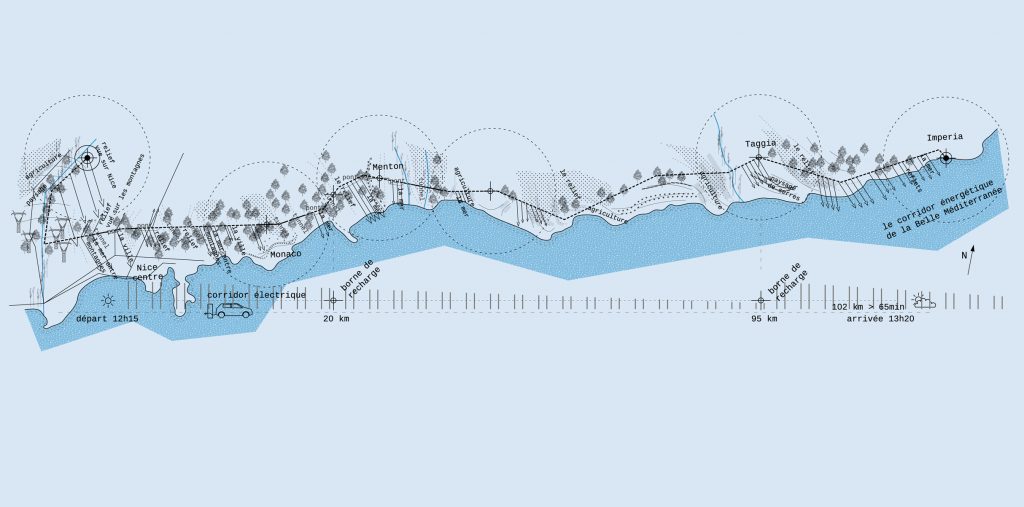

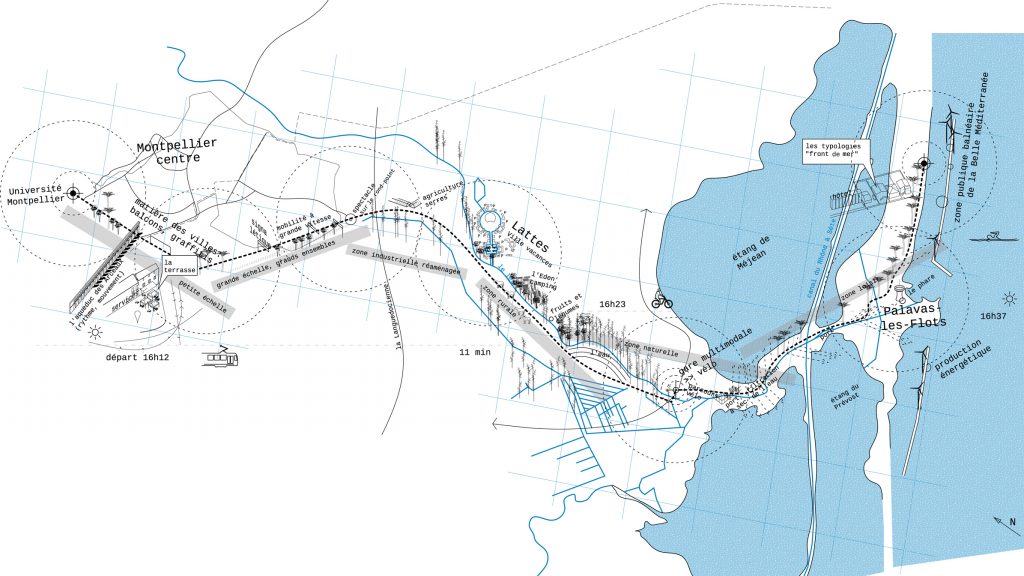
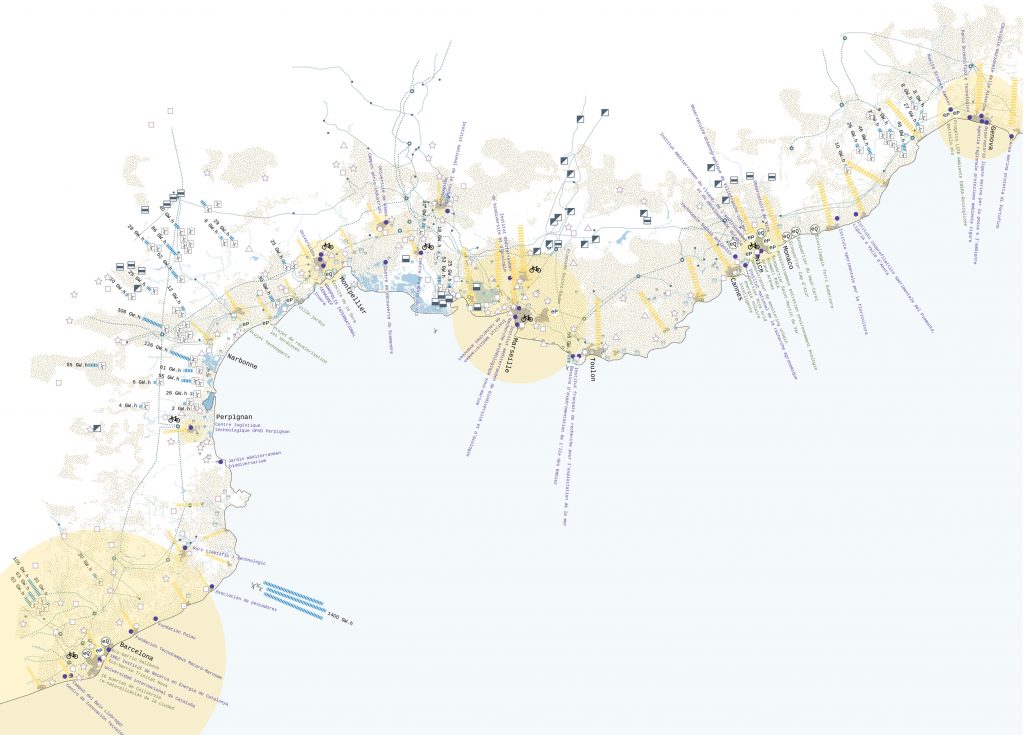
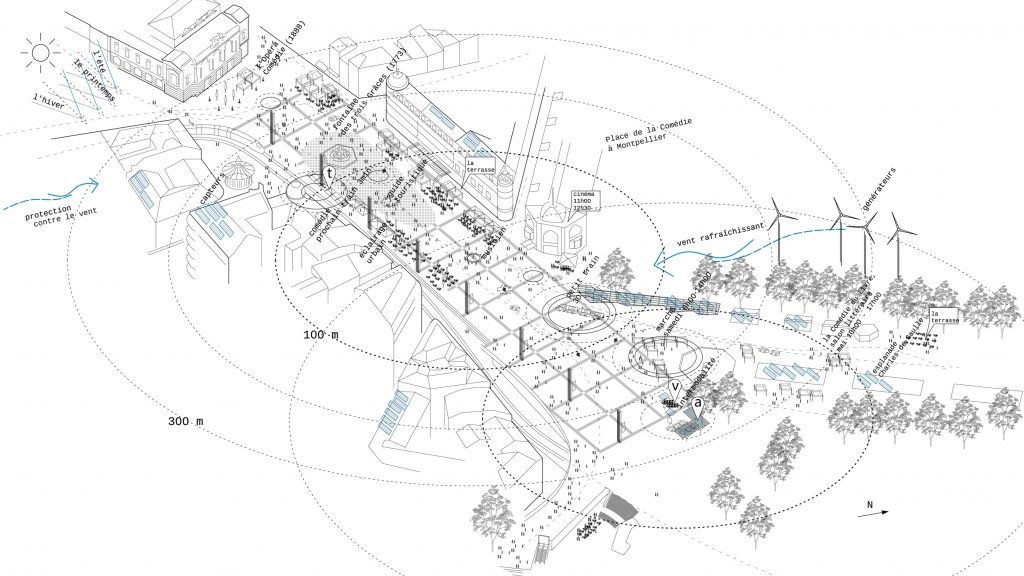
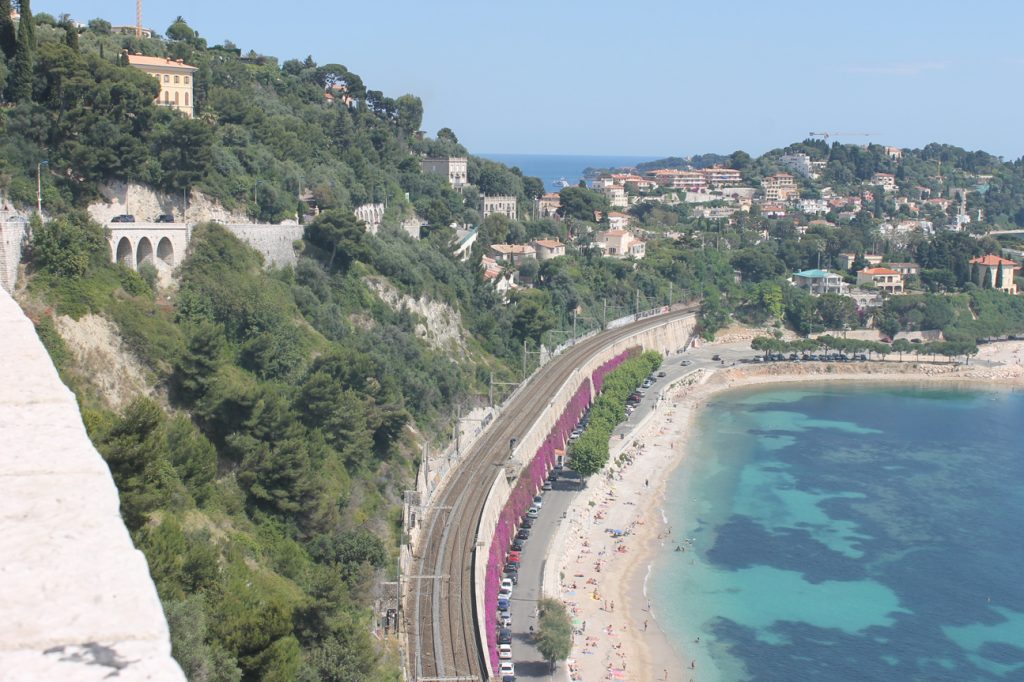





Le Sensual City Studio est conçu comme un lieu de réflexion où se fabrique la pensée, long cheminement nécessaire au travail de conception et de réalisation des projets. Approcher l’espace dans sa complexité physique, fonctionnelle, sociologique, nécessite un décloisonnement des disciplines et un travail collectif : c’est ce que reflète la composition de l’équipe, étoffée par un riche faisceau de contributeurs. Cette démarche, à la croisée des savoirs et de la création, permet la rencontre des regards : une démarche de co-construction ouverte qui enrichit la compréhension des enjeux et donne un sens à la conduite des projets menés au sein du Studio. Cette posture de recherche et d’approfondissement s’inscrit dans la tradition humaniste du studio, cabinet d’étude de la Renaissance où sciences et arts convergent et se nourrissent de leurs apports mutuels.
Cette interface est la matérialisation métaphorique de notre démarche : elle propose de partager une série de projets conçus dans des cadres variés et des logiques de recherche ponctuelles ou récurrentes. Que cela soit en déplaçant les cadres d’une commande ou en se créant des opportunités de réflexion, le projet reste le même : celui de la ville sensuelle.
Édition │ Publication du site
Le site www.search.sensual-city.com est édité par Sensual City Studio, 24 rue Dareau, 75014 Paris, France.
Directrice de la publication : Pauline Marchetti
T +33 (0)143 132 020
F +33 (0)143 132 021
M communication@ferriermarchetti.studio
SIRET 52860142000029 – code APE 7410Z
Conception │ Réalisation du site
Design : © Olivier Lebrun
Code : © Ahmed Ghazi
Hébergement du site
Le site www.sensual-city.com est hébergé par Gandi, 63-65 boulevard Massena, 75013 Paris, France.
Pour contacter cet hébergeur, rendez-vous à l’adresse https://www.gandi.net/fr
L’accès au site ainsi que l’utilisation de son contenu s’effectuent dans le cadre des mentions d’utilisation décrites ci-après. Le fait d’accéder et de naviguer sur le site constitue de la part de l’internaute une acceptation sans réserve des précisions suivantes.
Sensual City Studio s’efforce d’assurer au mieux l’exactitude et la mise à jour des informations diffusées sur ce site, dont elle se réserve le droit de corriger, à tout moment et sans préavis, le contenu. Toutefois, le Studio ne peut garantir l’exactitude, la précision ou l’exhaustivité des informations mises à la disposition sur ce site.
Droit de propriété intellectuelle
L’ensemble du site et chacun des éléments qui le composent (tels que noms de domaine, textes, arborescences, images, photographies, illustrations, logos) sont la propriété exclusive de Sensual City Studio (ou des tiers qui sont référencés), qui est seule habilitée à exploiter les droits de propriété intellectuelle y afférents.